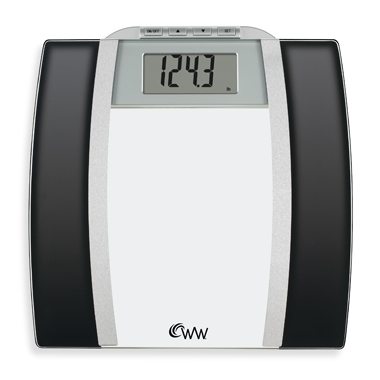Are you one of those people who weighs yourself everyday as part of your morning routine? If so, you probably know that the number you see on the scale can determine your mood for that day: you feel great if it’s low, or instantly discouraged if it’s not what you wanted. So is it better to be the type who hasn’t weighed herself in at least a decade? Probably not. For most people who are trying to maintain a healthy weight, the sweet spot is somewhere in between. Here are my recommendations:
- Weigh yourself once a week, at roughly the same time on the same day…if you’re trying to lose weight or maintain a recent weight loss, that is. Your weekly weigh-in will help motivate you stay on top of your healthy habits, because you’re less likely to blow off eating well and exercising if you know you have to weigh yourself on your predetermined day. If you see a steady change in one direction or another over the course of a few weeks (like each week you’re gaining 1/2 a lb), you can pay special attention to your habits for a few days to figure out where these extra calories are coming from.
- Avoid weighing yourself everyday. Water, salt, whether you’ve gone to the bathroom, what you’re wearing, etc. can easily affect your weight day-to-day. And like I mentioned above, slight daily weight changes may cause significant changes in your mental well-being, which is not worth sacrificing! Weighing yourself once a week at a predetermined time will be plenty to keep good track of your overall direction.
- Some people don’t really need to weigh themselves at all. If you’re the type of person whose been the same size since you graduated high school, and never gets obsessive about weight or food, then there’s no need to weigh yourself. If your clothes ever start getting snug, or you find yourself eating beyond fullness more than a few times a year, then it may be time to step on the scale to see what’s going on.
- Don’t weigh yourself and instead get some help if: you have a history of anorexia or bulimia, your weight dominates your thoughts more than once in a great while, your weight determines how you feel about yourself, or if you’re extremely overweight and don’t even know where to start to get back on track. In any of these situations, it’s best to seek out a registered dietitian or a psychologist in your area who knows how to help!







No Comments